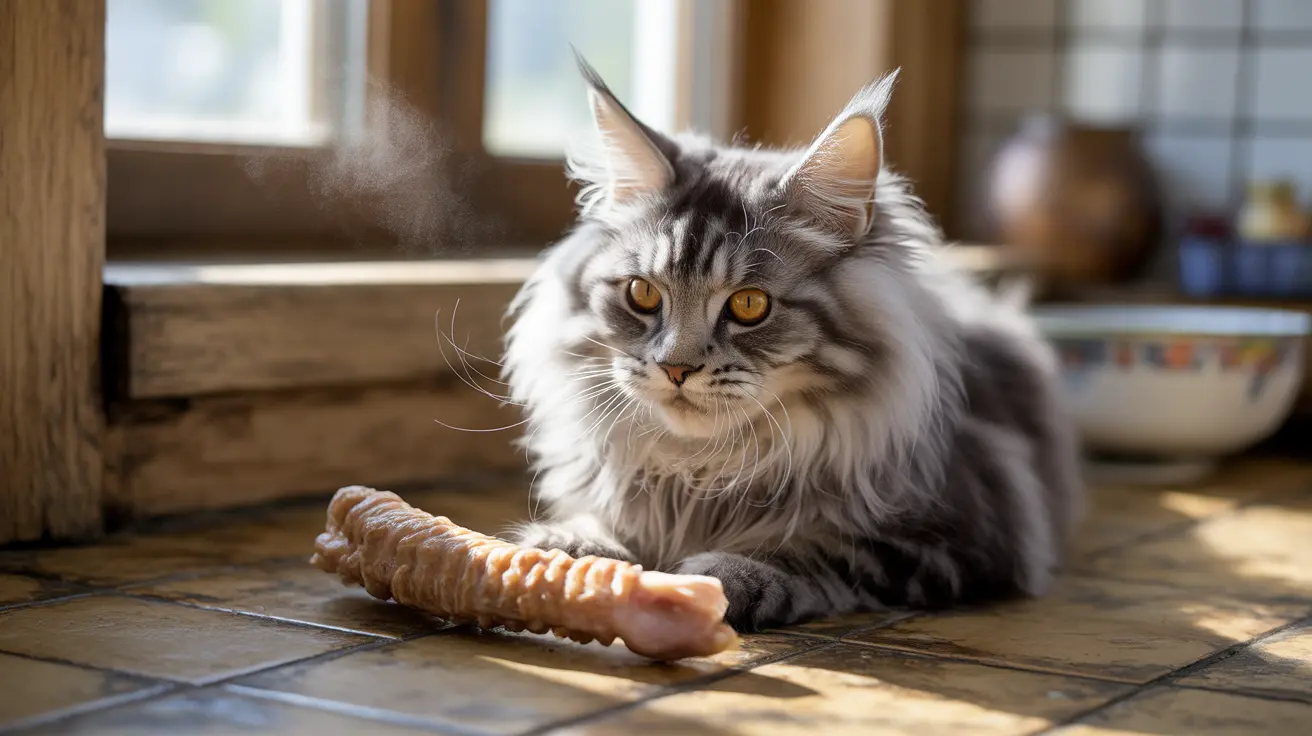If you're a pet parent to both cats and dogs, you might wonder whether your feline friend can safely share in your dog's favorite treats - specifically, pig ears. While these chewy treats are popular among canines, their suitability for cats is a different matter entirely.
In this comprehensive guide, we'll explore the safety, risks, and alternatives to pig ears for cats, helping you make an informed decision about your pet's treats.
Understanding the Risks of Pig Ears for Cats
While pig ears aren't toxic to cats, they present several significant health risks that make them an unsuitable treat choice for felines. Cats have different dental structures and digestive systems compared to dogs, making these tough, chewy treats potentially dangerous.
Physical and Dental Hazards
Cats' teeth are designed for shearing meat, not grinding tough materials like pig ears. Attempting to chew these treats can lead to:
- Broken or damaged teeth
- Oral injuries
- Choking hazards
- Potential intestinal blockages
Digestive Concerns
The high fat content in pig ears can cause several digestive issues in cats:
- Vomiting and diarrhea
- Pancreatitis
- Gastrointestinal upset
- Potential bacterial contamination from raw or improperly processed treats
Nutritional Impact on Cats
While pig ears do contain protein, their nutritional profile isn't ideal for cats. The high fat and sodium content can lead to:
- Obesity
- Diabetes
- Joint problems
- Cardiovascular issues in sensitive cats
Better Alternatives for Cat Treats
Instead of pig ears, consider these veterinarian-recommended treats for your cat:
- Commercial cat-specific dental treats
- Small pieces of lean, cooked meat
- Freeze-dried meat treats designed for cats
- Cat-specific dental chews
What to Do If Your Cat Eats a Pig Ear
If your cat manages to get hold of a pig ear, don't panic. Monitor them closely for:
- Signs of choking
- Digestive distress
- Changes in behavior or appetite
- Difficulty passing stool
Contact your veterinarian immediately if you notice any concerning symptoms.
Frequently Asked Questions
Can cats safely eat pig ears as a treat?
No, pig ears are not recommended for cats. While not toxic, they pose significant risks including dental damage, choking hazards, and digestive issues.
What health risks do pig ears pose for cats?
The main risks include dental damage, choking, intestinal blockage, bacterial contamination, and digestive upset due to high fat content.
Are pig ears nutritionally suitable for a cat's diet?
No, pig ears are not nutritionally suitable for cats. They're too high in fat and sodium, and the protein they contain isn't in an optimal form for feline nutrition.
What should I do if my cat accidentally eats a pig ear?
Monitor your cat closely for signs of distress, including vomiting, diarrhea, or difficulty breathing. Contact your veterinarian if you notice any concerning symptoms.
What are healthier, safer treat alternatives to pig ears for cats?
Better alternatives include cat-specific dental treats, small pieces of lean cooked meat, freeze-dried meat treats designed for cats, and specialized feline dental chews.
Conclusion
While pig ears might be a popular treat for dogs, they're not appropriate for cats. The risks far outweigh any potential benefits, and there are many safer, more suitable alternatives available specifically designed for feline consumption.
Always consult with your veterinarian about appropriate treats for your cat, and stick to products specifically formulated for feline consumption to ensure your pet's safety and health.






